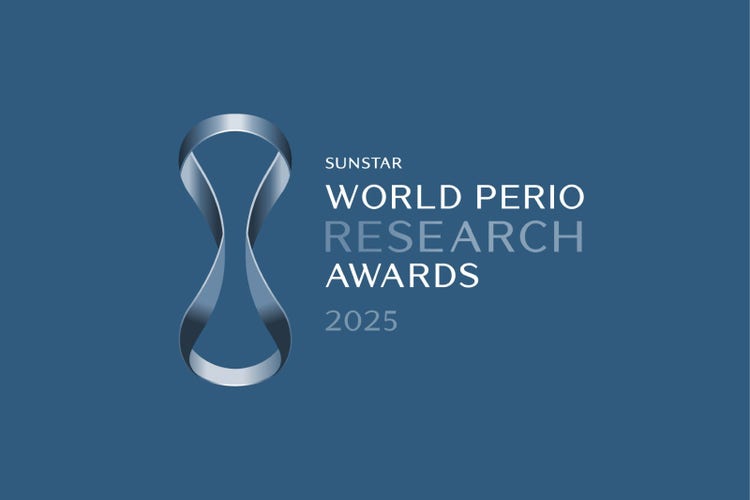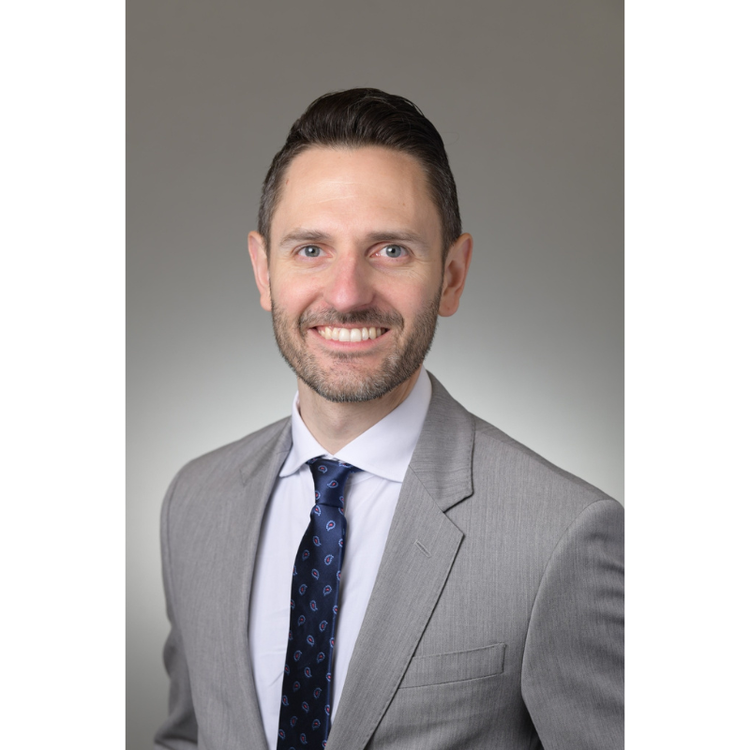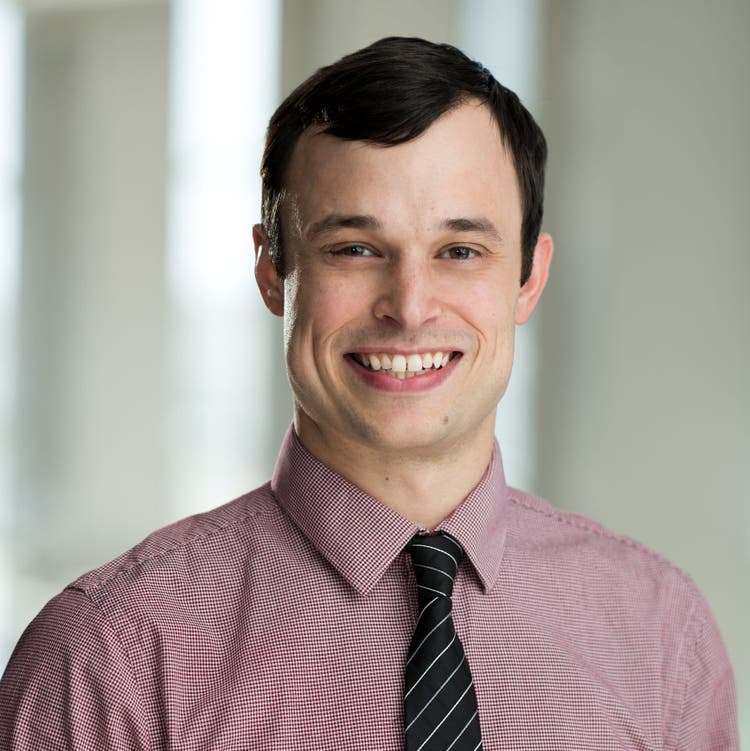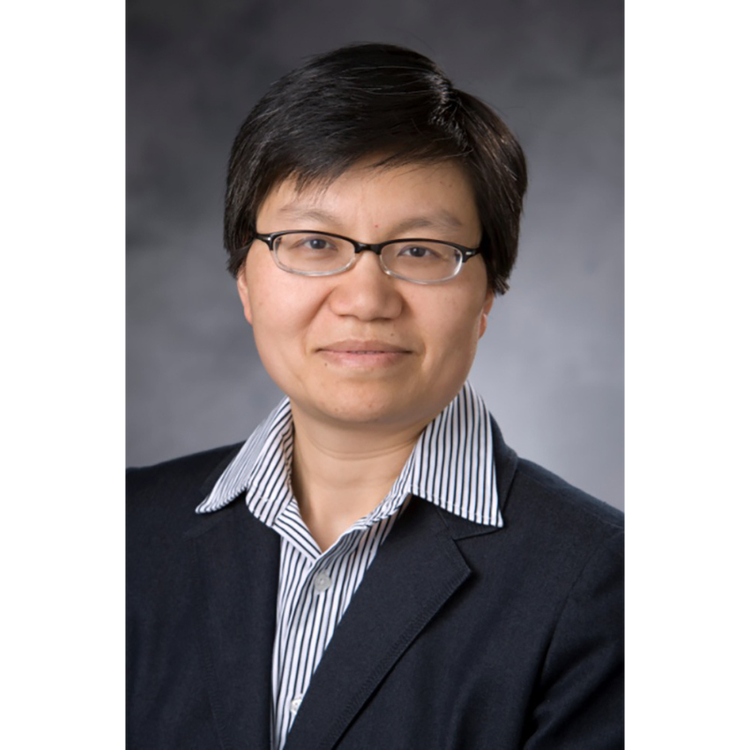
World Perio Research Awards
Discover the 2025 World Perio Research Awards Winners
Presenting the 2025 World Perio Research Awards Winners
Kevin Matthew Byrd, DDS, Ph.D.
1st place
United States
Assistant Professor, VCU School of Dentistry PI
Lab of Oral & Craniofacial Innovation (LOCI) Member
VCU Philips Institute for Oral Health Research Member, VCU Massey Comprehensive Cancer Center

The Story Behind the Winning Research Paper
“The strength of a team is judged not on how it deals with success but how it overcomes challenges” – Dr. Byrd
In March 2020, when the world was facing huge challenges, Dr. Byrd and his team used single-cell research to improve oral health. Despite the pandemic, they worked together globally to answer an important question: how does SARS-CoV-2 affect the mouth, and can saliva spread the virus? What started as online discussions turned into a groundbreaking study, thanks to the hard work of researchers worldwide. Their findings not only helped to understand the virus better but also showed the power of teamwork and discovery during tough times. Today, we proudly recognize Dr. Byrd for his exceptional contributions with the World Perio Research Award.
SARS-CoV-2 infection of the oral cavity and saliva
Ni Huang, Paola Pérez, Takafumi Kato, Yu Mikami, Kenichi Okuda, Rodney C.Gilmore, Cecilia Domínguez Conde, Billel Gasmi, Sydney Stein, Margaret Beach, Eileen Pelayo, Jose O. Maldonado, Bernard A. Lafont, Shyh-Ing Jang, Nadia Nasir, Ricardo J. Padilla, Valerie A. Murrah, Robert Maile, William Lovell, Shannon M. Wallet, Natalie M. Bowman, Suzanne L. Meinig, Matthew C. Wolfgang, Saibyasachi N. Choudhury, NIH COVID-19 Autopsy Consortium, HCA Oral and Craniofacial Biological Network, … Kevin M. Byrd
Full paper: Nature medicine, 27(5), 892–903. https://doi.org/10.1038/s41591-021-01296-8
More about the research
Dr. Byrd’s research, recognized with this award, demonstrated that SARS-CoV-2 directly infects and replicates within the oral cavity, particularly in minor salivary glands and mucosal tissues. His team established a comprehensive single-cell atlas, revealing epithelial susceptibility to viral entry and correlating salivary viral load with clinical symptoms like taste loss. These findings emphasized the oral cavity's role in COVID-19 transmission and salivary antibody responses, paving the way for better diagnostic and therapeutic approaches
Get to Know Dr. Byrd
Dr. Byrd is driven by the belief that oral health is central to systemic health, serving as a gateway to understanding broader biological processes. His passion stems from a desire to uncover the connections between oral tissues and systemic diseases, fostering discoveries that bridge oral biology and precision medicine.
More About Dr. Byrd
Dr. Kevin Matthew Byrd is an Assistant Professor of Oral and Craniofacial Molecular Biology at Virginia Commonwealth University (VCU) and the former Director of Cell & Molecular Biology at ADA Science & Research Institute. As the Founder of the Human Cell Atlas Oral & Craniofacial Bionetwork, he leads global collaborations mapping oral and craniofacial tissues to better understand their systemic implications in health and disease. His research bridges oral biology, spatial biology, and precision medicine to advance treatments for complex diseases like cancer and chronic inflammation.
Career highlights
Dr. Kevin Matthew Byrd co-founded and leads the Human Cell Atlas Oral & Craniofacial Bionetwork, a global initiative uniting over 80 laboratories to map the cellular architecture of oral and craniofacial tissues and their connections to systemic health. This network has transformed the understanding of these tissues, fostering collaboration and innovation across multiple disciplines. His groundbreaking research on SARS-CoV-2, published in Nature Medicine, demonstrated that the virus directly infects oral tissues, including salivary glands, and uncovered the oral cavity's critical role in viral transmission and immune responses during COVID-19. Additionally, through the PROSPECT project, Dr. Byrd is pioneering spatial multiomics to generate pan-cancer insights, integrating data from multiple cancers to identify key immune microenvironments and cellular interactions that inform therapeutic strategies in precision oncology. These career achievements exemplify his commitment to advancing oral biology and systemic health research.
Gregory Charles Valentine, MD MED FAAP
2nd place
United States
Associate Professor of Pediatrics, Division of Neonatology
Adjunct Associate Professor, Departments of Oral Health Sciences & Mechanical Engineering; University of Washington & Seattle Children's Hospital
Adjunct Associate Professor, School of Medicine, Obstetrics & Gynecology; Baylor College of Medicine

The Story Behind the Winning Research Paper
“Obstetricians and clinicians caring for pregnant individuals must evaluate the oral health and well-being of all patients early in pregnancy. Oral health in pregnancy is intricately connected to the health and well-being of both the pregnant individual and their children.” – Dr. Valentine
Dr. Steven Offenbacher first discovered a strong relationship between periodontal disease and preterm birth in 1996. His work led to the MOTOR trial which evaluated whether dental scaling and root planing performed in pregnancy versus delayed until after pregnancy reduced the risk of preterm birth. While it was not found to reduce the risk of preterm birth, it did improve oral health metrics. The natural next question was whether there were long-term benefits to the offspring born during the MOTOR trial to determine whether dental scaling and root planing in pregnancy versus delayed after pregnancy led to differential effects on neurodevelopmental outcomes. One outcome of interest was autism signs and symptoms among children. As a neonatologist, Dr. Valentine is passionate about preventing preterm birth and neurodevelopmental impairment of children. As a fetus develops, fetal exposure to infection and inflammation increases the risk of neurodevelopmental impairment. Periodontal disease is both a chronic infection with both local and systemic inflammatory changes. Thus, pregnant individuals with periodontal disease are at risk for systemic harms to both them and their children.
Antepartum periodontitis treatment and risk of offspring screening positive for autism spectrum disorder
Carl Bose , Gregory Charles Valentine , Kamaira Philips , Kim Boggess , Kevin Moss , Silvana P Barros , Julie Marchesan , Di Wu , Thomas M O'Shea , Myriam Peralta-Carcelen , Ricki Goldstein , Rajam Ramamurthy , James D Beck
Full paper: J Perinatol 43, 470–476 (2023). https://doi.org/10.1038/s41372-023-01610-x
More about the research
Dr. Valentine’s research, recognized with this award, showed that dental scaling and root planing is not harmful in pregnancy. In fact, it not only can improve the pregnant individual’s oral health, but it may also prevent long-term neurodevelopmental harm to one’s children, including signs of autism. Pregnant individuals with the most severe forms of periodontal disease benefit the most with treatment in pregnancy. Thus, the oral-systemic health connection in pregnancy is incredibly important, with an impact that has the potential to span generations. It is important that obstetricians and healthcare providers caring for pregnant individuals screen pregnant individuals early in pregnancy for oral health to maximize potential health benefits to the pregnant individual and their children.
Get to Know Dr. Valentine
Dr. Valentine was an early-career physician-scientist at the time of publishing this manuscript, and it was serendipitous that everything aligned as it did. Due to the premature passing of Dr. Steven Offenbacher, the publication had remained unpublished, despite a draft having been composed many years earlier. Through inquiry and engagement with the original authors of the MOTOR trial, Dr. Valentine discovered that the manuscript needed someone to help bring it to completion. Taking on this role provided an opportunity not only to contribute to the work but also to learn from the exceptional team that initially developed and led the successful MOTOR trial. This experience underscores the value of reaching out to authors, demonstrating curiosity about their work, and committing to its completion. Dr. Valentine considers it a privilege and an honor to have been mentored by the team behind the MOTOR trial and to contribute to this important study, following in the footsteps of the esteemed Dr. Steven Offenbacher.
More About Dr. Valentine
Gregory Valentine is a neonatologist at the University of Washington who focuses on the interplay of oral health and the relationship with systemic health in pregnancy. Specifically, Dr. Valentine seeks to evaluate innovative methods to improve oral health and/or prevent oral disease in pregnancy and the relationship with adverse pregnancy and newborn outcomes. His research portfolio encompasses evaluating xylitol-containing chewing gum, dental scaling and root planing, and other methodologies to improve oral health in pregnancy.
Career highlights
Dr. Valentine and his colleagues recently found that chewing xylitol-containing chewing gum in pregnancy reduced the risk of preterm birth in Malawi while concurrently improving findings of gingival inflammation such as bleeding on probing. These findings build upon Dr. Steven Offenbacher’s seminal work exploring treatment of periodontal disease in pregnancy on preventing harm to the pregnant individual and their offspring. A simple intervention such as xylitol containing chewing gum may prevent preterm birth and may improve the long-term health and well-being of children. If confirmed, this will have significant global health implications in obstetric-related care worldwide.
Bei Wu, Ph.D.
3rd place
United States
Dean’s Professor in Global Health
Vice Dean for Research; Rory Meyers College of Nursing, New York University
Affiliated Professor, College of Dentistry, New York University

The Story Behind the Winning Research Paper
“ Maintaining both metabolic and oral health is crucial for preserving cognitive function in aging populations .” – Dr. Wu
The main finding of Dr. Wu’s paper is that co-occurrence of diabetes mellitus (DM) and edentulism (complete tooth loss) leads to worse brain function and faster mental decline in older adults, especially those aged 65 to 74. The study emphasizes the importance of managing both diabetes and oral health to help slow down cognitive decline. It also highlights the need for doctors and dentists to work together to support brain health in aging adults.
Diabetes, Edentulism, and Cognitive Decline: A 12-Year Prospective Analysis
Bei Wu, Huabin Luo, C Tan, Xianq Qi, Frank A. Sloan, Angela Kamer. M.D. Schwartz, M. Martinez, B.L Plassman
Full paper: Journal of Dental Research. 2023;102(8):879-886. doi:10.1177/00220345231155825
More about the research
To our knowledge, this is the first study examining the longitudinal association of the co-occurrence of diabetes and edentulism with cognitive decline. Using data on a nationally representative cohort of 9,948 older adults, the study found that the effects of the co-occurrence of diabetes and edentulism or one of these conditions alone on cognitive decline varied across different age groups: for adults aged 65 to 74 y, co-occurring diabetes and edentulism was associated with worse cognitive function and an accelerated rate of cognitive decline compared with those with neither condition. In addition, edentulism is associated with diminished cognitive function for this group of 65 to 74 y and faster cognitive decline in both the group of 65 to 74 y and the group of 75 to 84 y. Yet, diabetes alone contributed to a faster cognitive decline only in the group 65 to 74 y.
In summary, the study demonstrated that the co-occurrence of diabetes and edentulism can lead to worse cognitive function and accelerated cognitive decline for older adults aged 65 to 74 y. The findings have important policy and clinical implications for preventing cognitive decline among older adults, especially those with diabetes and poor oral health. For individuals with both poor oral health and diabetes, regular dental visits should be encouraged in addition to adherence to the diabetes self-care protocol. Regular cognitive screening may be needed in the primary care setting for older adults with poor oral health and diabetes. Furthermore, the link between oral health and cognition should be emphasized during routine cleanings; dental care and programs are needed to reduce the societal cost of Alzheimer’s disease and related dementias.
More About Dr. Wu
Dr. Wu is an internationally known leader in gerontology. Her career in gerontology has been distinguished by interdisciplinary collaborations with researchers in various disciplines, including nursing and dentistry, at many academic institutions and organizations in the United States and abroad. Her extensive publications (425 peer-reviewed manuscripts) cover a wide range of areas in aging and health, with a particular focus on dementia caregiving, geriatric oral health, and risk factors associated with cognitive impairment.
She currently leads several NIH-funded projects, including a clinical trial aimed at improving oral health in individuals with cognitive impairment and a study investigating the links between oral health and dementia subtypes, with a focus on biological pathways and social determinants of health. Additionally, Dr. Wu co-leads the NIH/NIMHD-funded Rutgers-NYU Center for Asian Health Promotion and Equity, where she oversees an intervention study to enhance health outcomes for Chinese and Korean dementia caregivers. She also serves as a Multiple Principal Investigator (MPI) for the NIA-funded Asian Resource Center for Minority Aging Research (RCMAR) and the Resource Center for Alzheimer’s and Dementia Research in Asian and Pacific Americans (RCASIA).
Career highlights
In 2017, Dr. Wu received the distinguished scientist award for geriatric oral research from the International Association for Dental Research. For the past two decades, Dr. Wu has mentored hundreds of early-stage faculty members, postdoc fellows, visiting scholars, and undergraduate and graduate students from various disciplines globally. Dr. Wu is a fellow of the Gerontological Society of America and the New York Academy of Medicine. Additionally, she is an Honorary Fellow of the American Academy of Nursing. She is the recipient of the 2023 Maxwell A. Pollack Award for Contributions to Healthy Aging from the Gerontological Society of America, and the 2024 Public Service Award from the American Association for Dental, Oral, and Craniofacial Research.